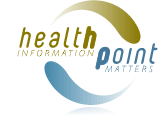About the Service
Working as part of a multidisciplinary team, community speech-language therapists provide assessment and intervention for people aged 16 and over with acquired communication and/or swallowing difficulties. Interventions are patient centred and are aimed at working towards patient and whānau/caregiver needs and goals.
Interventions include:
- Providing swallowing and communication assessment and advice.
- Rehabilitation programmes aimed at achieving a person's desired level of independence, social participation and wellbeing within their environment.
- Supporting patients in finding ways to compensate for and adapt to their changed/changing communication and swallowing associated with their medical condition.
Contact with community speech-language therapists may be over the phone, over video-call, in a clinic, or at home, depending on the patient's needs.
Communication and swallowing problems can be caused by lots of health issues including:
- stroke
- brain injury (these patients are usually seen by therapists contracted under ACC)
- degenerative conditions such as Parkinson's disease, dementia, and motor-neurone disease
- respiratory conditions such as chronic obstructive pulmonary disease and recurrent pneumonia
- cancer of the head, neck, throat, and brain
Common Conditions
-
Aphasia
Aphasia (also referred to as dysphasia) is a language disorder where the person's ability to use language to communicate is impaired in some way. This can include speaking, understanding, reading, writing, and/or using numbers.
Aphasia
AphasiaNZ Charitable Trust -
Apraxia
Apraxia is a speech disorder characterised by difficulty coordinating the muscles needed to talk.
Apraxia - Dysarthria
Dysarthria is a speech disorder caused by muscle weakness or spasticity.
Dysarthria -
Dysphagia
Dysphagia is difficulty with swallowing. This can be on food, drink, and/or saliva.
Dysphagia
Feeding the Dependent Person
Community speech-language therapists are able to access the services of the Auckland wide Volunteer Stroke Scheme. This service recruits volunteers to meet with clients in the community who have communication impairments following a stroke. These volunteers are trained as 'conversation partners' and use total communication strategies to give the client opportunities to experience effective two-way communication and social interaction. Clients referred to the scheme by community speech-language therapists may either receive one-to-one visits from a volunteer and/or attend a communication group. To access the scheme, people must first be assessed and referred by a Te Whatu Ora speech-language therapist within the Auckland region.
Volunteer Stroke Scheme
